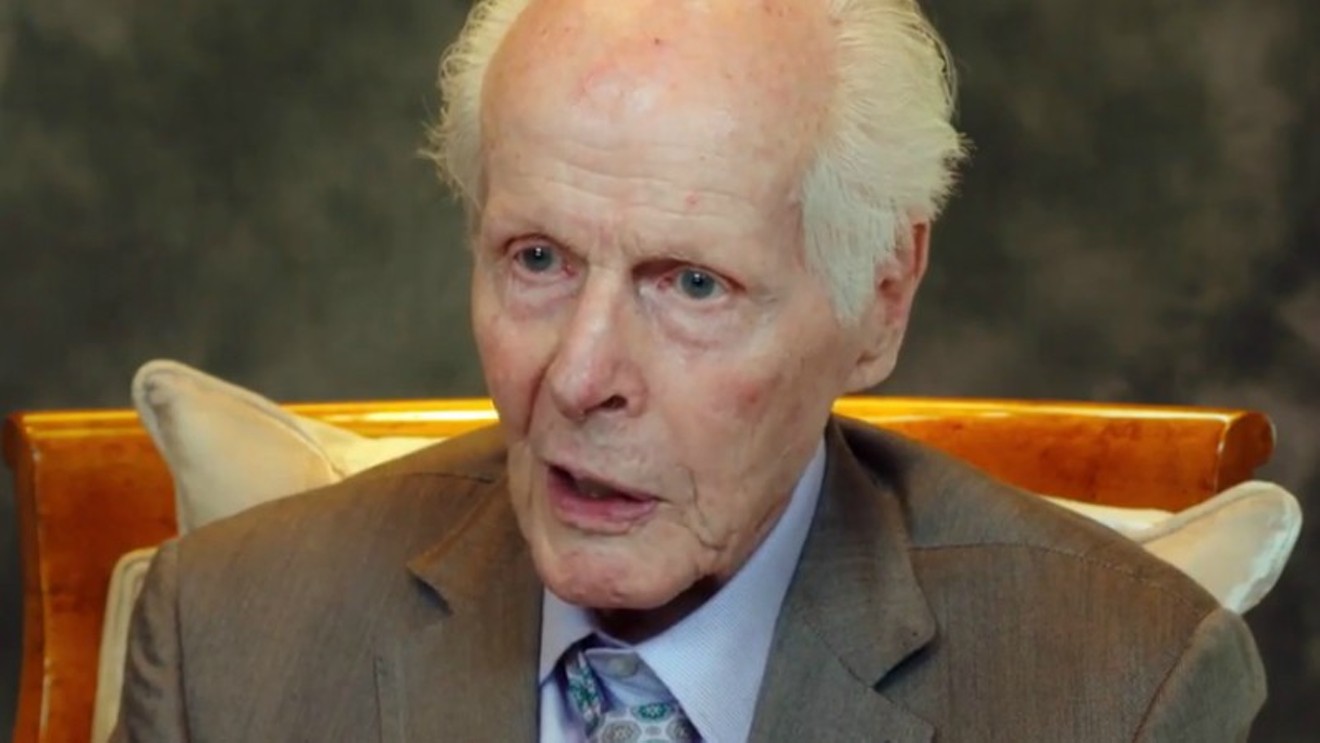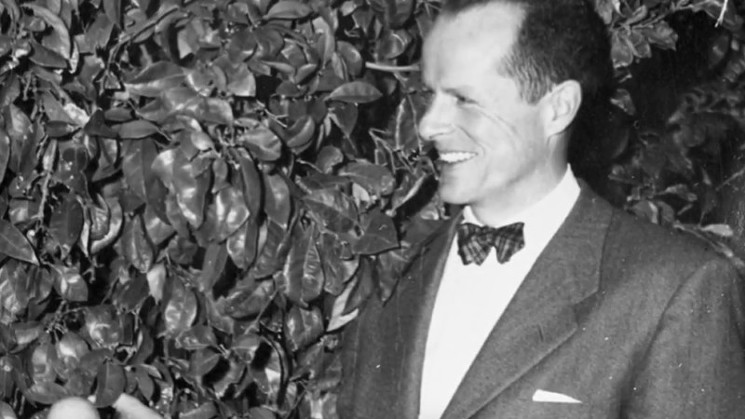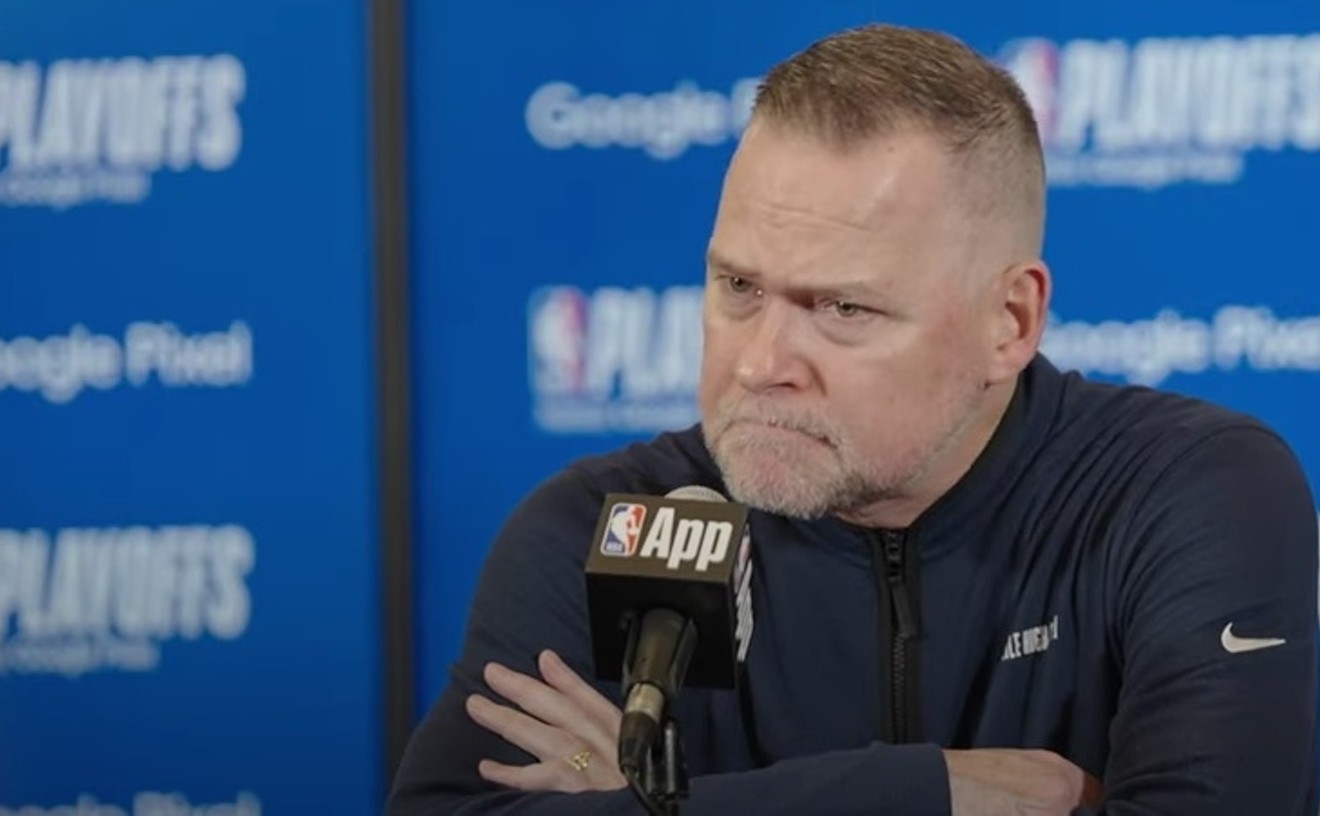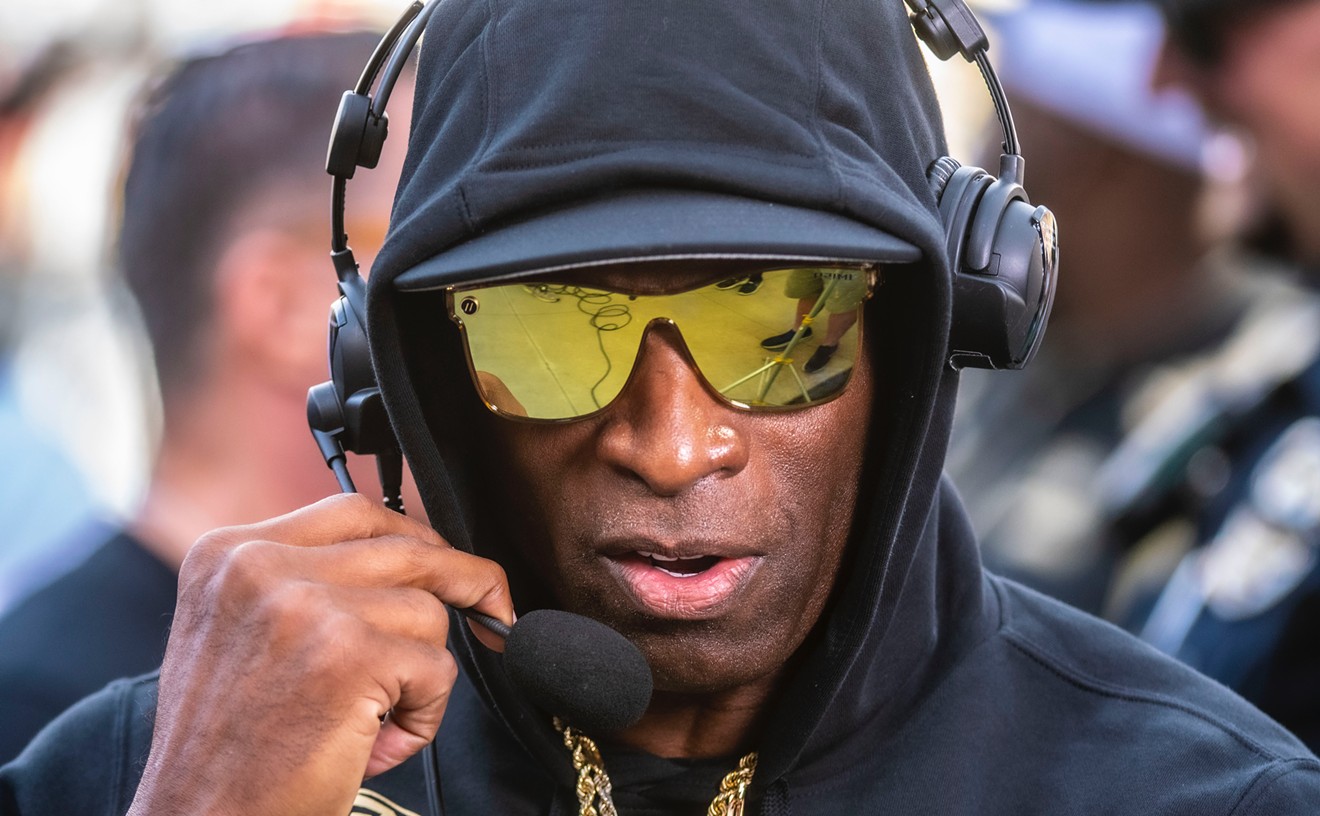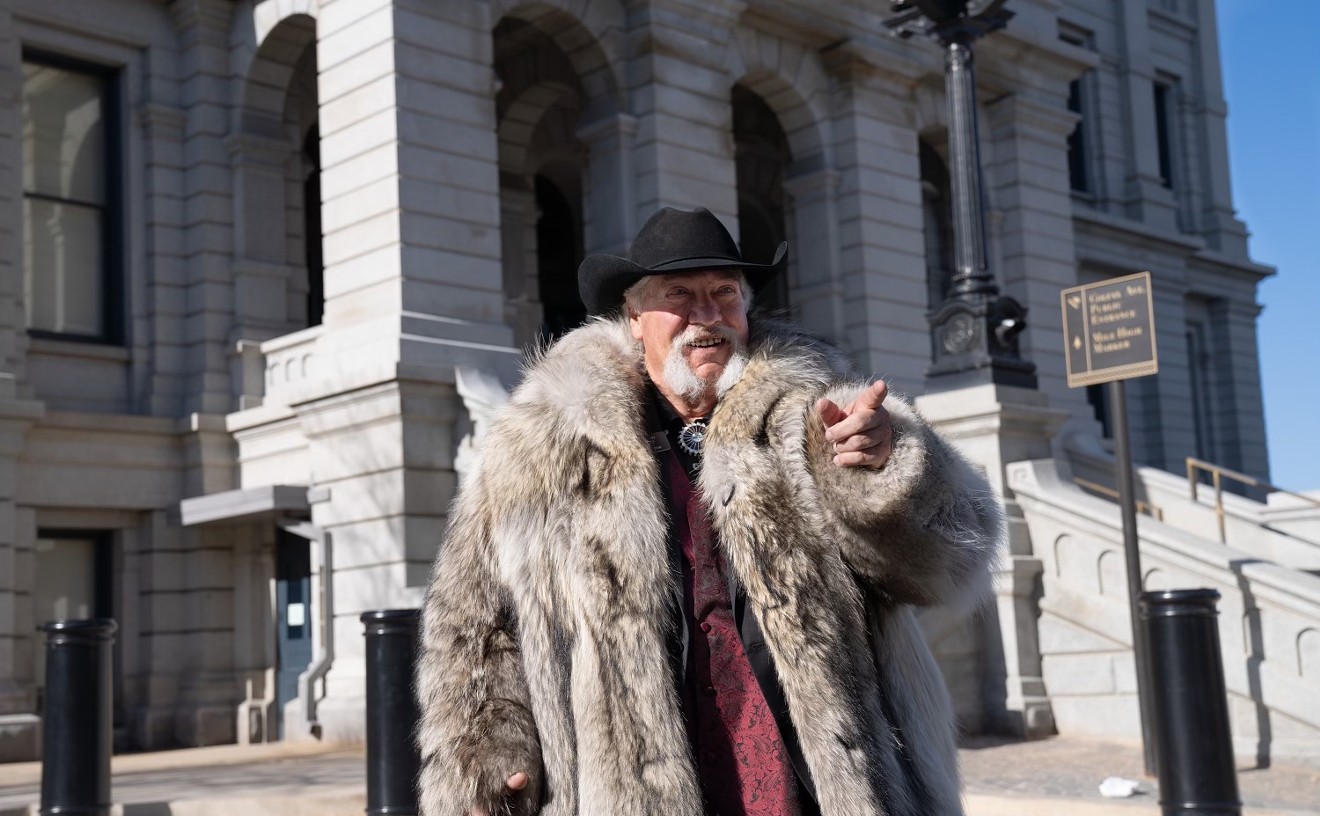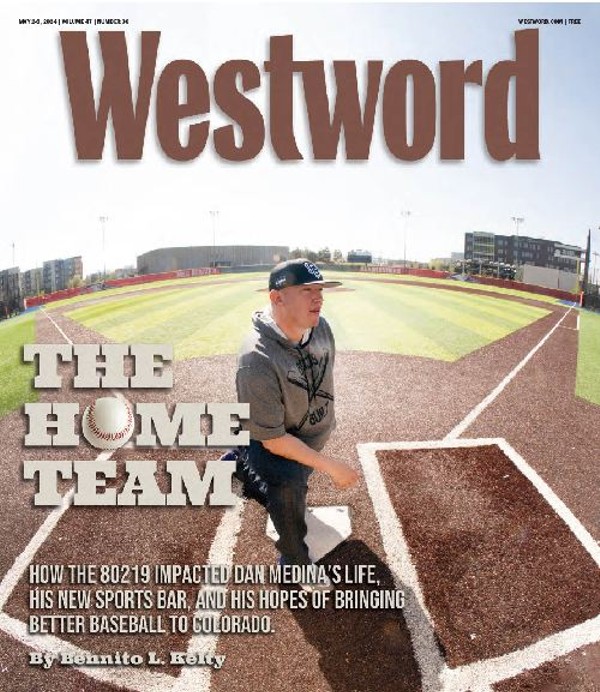Included at the bottom of this post is the full remembrance of Bill released by Molson Coors Brewing Company after his death at home on October 13. The offering recounts the broad strokes of his career, including his 1939 start at the firm founded by his grandfather, Adolph Coors, and his pioneering development of the aluminum can as a beer container.
But the piece skips the tragic reason he took over the enterprise — his older brother, Adolph Coors III, was murdered at age 44 amid a botched kidnapping — or the ways his personal politics differed from those of his late brother Joe, whose association with the Heritage Foundation played an outsized role in the development of modern conservatism.
In 2004, Westword editor Patricia Calhoun shared this description of Joe by Bill: "He was conservative as they come. I mean, he was a little bit right of Attila the Hun."
Bill had other fascinations, as past Westword staff writer Eric Dexheimer revealed in the 1995 feature article "A Crumbling Foundation." The piece took a close look at the unraveling of the Adolph Coors Medical Research Foundation, which came to life in large part because of the advocacy of Bill and car-sales entrepreneur Chuck Stevinson for non-traditional treatments developed by one Rajko Medenica. Bill credited Medenica with reversing a problem with his eyes (he had been losing the ability to see colors) and helping him overcome prostate problems. "I hold myself out" as an example of Medenica's genius, Bill maintained.
The Adolph Coors Medical Research Foundation wasn't built to last, but its demise didn't cause Bill to back away from the alternative-health-care cause, epitomized by his launch of a wellness center at Coors Brewery in Golden long before such facilities were commonplace. Today, for example, the Adolph Coors Foundation is taking part in what's described on its website as "a multi-pronged project of medical research and demonstration projects to coalesce the public — and other donors — around the most promising integrative medical practices" at institutions such as the Center for Integrative Medicine at the University of Arizona.
He didn't stop there, as is clear from The Will to Live, which is synopsized like so:
Having recently observed his 102nd birthday, beer-brewing titan Bill Coors — along with family, friends, associates and admirers — looks back on one man’s struggle to overcome heart-wrenching adversity and his historic contributions not only to industry, but to top-secret military efforts in WWII, the environment, holistic and mental health (a 25-year personal journey), GBLTQ rights and a philosophy of tolerance and self-love. How one man not only witnessed a century of history, but helped make it...and today shares an extraordinary legacy of overcoming depression and anxiety to achieve emotional well-being.Here's the trailer for The Will to Live:
Obviously, Bill was able to engage in a wide variety of passions thanks largely to his membership in a famously successful family. But he made his own quirky mark.
Continue to read the aforementioned Molson Coors release about the life of Bill Coors.
Molson Coors Remembers Bill Coors
Molson Coors Brewing Company (NYSE: TAP; TSX: TPX) is saddened to announce that William (“Bill”) K. Coors, former chairman of the board of Adolph Coors Company and one of the truly great beer industry leaders, died peacefully at his home today at age 102.
Coors was born Aug. 11, 1916, the grandson of Adolph Coors Company founder Adolph Coors. He started his career at the company in 1939.
During his more than 65 years with the company, he contributed heavily to the company’s rise from a regional brewer, distributing in only a few western states, to one of the world’s largest breweries. Under his watch, Coors survived and prospered while hundreds of breweries went out of business. “The fact that we survived and even grew over the years when so many breweries went out of business was an accomplishment that all Coors employees can be proud of,” he would say.
With the company’s triumphs and failures, Bill Coors learned to develop and maintain a positive outlook on life. “I’ve taken my kicks,” Coors said, “but I have had a fascinating life and I’ve been richly rewarded.”
President and CEO of Molson Coors, Mark Hunter, said, “Our company stands on the shoulders of giants like Bill Coors. His dedication, hard work and ingenuity, helped shape not only our company but the entire beer industry. We honor his memory by rededicating ourselves to continuing the work he loved so much – brewing the best tasting, highest quality beer to share with family and friends. Cheers to you Uncle Bill!”
In 1959, at the start of his tenure as chairman, Coors succeeded in revolutionizing the entire beverage industry with the creation and development of the aluminum can. He faced significant resistance from companies unwilling to change and even from the aluminum industry itself, but he stuck with his idea and changed an entire industry.
Coors also was a pioneer in the world of corporate wellness. Through his foresight and leadership, the company started one of the first employee wellness centers in the country and it still exists today.
Coors attended primary school in Golden, Colo., and spent four years at Phillips Exeter Academy in Exeter, N.H., before entering Princeton University where he earned a bachelor’s degree in chemical engineering in 1938 and a graduate degree in 1939.
Bill Coors was involved with numerous civic, educational and business organizations over the years, including: Boys and Girls Club of Denver Foundation, board of trustees; Colorado Symphony Orchestra, board of trustees; Colorado Outward Bound School, founding/lifetime trustee; Colorado Health Care Purchasing Alliance, board member; Colorado Business Coalition for Health, board chairman; Colorado School of Mines Foundation, board member; Denver University, board of trustees, and Colorado University President’s Leadership Class, lifetime trustee.
Bill Coors’ efforts and strong commitment to improving the quality of life around him earned him numerous awards, including Citizen of the West in 1992; the Patriots Award presented by the Congressional Medal of Honor Society; the Jewish National Fund Tree of Life Award and the Daniel Ritchie Award.
Bill is survived by his children Margaret Coors Beresford and her husband Michael, May Louise Coors and her husband Sharad Atre and Williams Scott Coors and his partner David Hurt, 7 grandchildren and 4 great-grandchildren, and a great number of nieces, nephews, great-nieces and great-nephews. He is pre-deceased by his parents Adolph and May Coors Jr., his brothers Adolph Coors III, Joseph Coors, Sr., and his sister May Louise Tooker. Pursuant to his directive no formal memorial ceremonies will be held. In lieu of flowers or other sentiments, the family welcomes you to contribute to the William K. Coors Memorial Fund hosted by the Denver Foundation.
Bill Coors. Father. Son. Uncle. Legend.
Bill Coors was born on August 11, 1916, the second son of Adolph Coors Jr. and May Coors. He grew up in a bungalow tucked behind the Adolph Coors Brewery with his two brothers, Adolph III and Joseph, and his sister May. The brewery grounds became their playground, where they shot home movies, rowed a canoe along the creek and made model airplanes out of wood in the company machine shop. At the age of six, Bill began piano lessons. His passion for playing continued throughout his entire life, and one of his most treasured possessions is his Bösendorfer piano. When Bill was asked to play the piano for the Founder’s Day celebration at the University of Denver in 1998, he had his own piano moved to the venue. When he finished playing, Bill, at the age of 81, received a standing ovation from the audience of 800 guests.
At the age of thirteen, Bill went to school at Exeter, where he joined crew, an activity he continued when he went to Princeton to obtain his graduate degree in Chemical Engineering. His lifelong pursuit of health and wellness has its roots in his youthful days rowing. Over the years, Bill struggled with and overcame tragedy, health issues and stress and he was passionate about sharing what he learned with others. Bill had a vision of wellness and recognized that stress in the workplace destroyed good workers. The Bill Coors Wellness Center, established in 1981, has won awards, honors and recognition as one of the first and most comprehensive industry based primary and secondary health promotion programs in the country. Bill has written and spoken extensively on the benefits of wellness and set a high standard for himself. In 1974, at the age of 58, Bill Coors reached the summit of Mt. Kilimanjaro — at the time, he was the oldest person to achieve that feat. The film Bill Coors: The Will to Live by Kerry David, released in 2018, documents Bill’s journey of personal wellness.
After Bill graduated from Princeton University in 1939, he returned home to Golden, Colorado to work for his father. Bill’s first marriage to Geraldine Jackson, was blessed with 4 children, 3 girls: Missy, Margaret (Maggie) and May, and a boy: William Kistler Jr. (Billy). Billy and Missy tragically passed away before their father. His second marriage with Phyliss Mahaffey was blessed with another son, Scott. Later in life he married Rita Bass, who predeceased him in 2015. Bill’s first job back in Golden after graduation was working for Coors Porcelain Company, which has evolved into today’s CoorsTek. Bill spent seven years at “the Pottery.” During his tenure he set up and launched the company’s first isostatic insulator line from the tools and equipment sold to Coors Porcelain from Champion Spark Plug Company. Bill remembers this time fondly, as for the first time in his life, he was totally in charge of a project; from the installation of the equipment to the operation the entire production line from start to finish. The quality and performance of the insulators produced at Coors Porcelain were unmatched and, during WWII, these insulators were used at the Oak Ridge National Laboratory in calutrons – which used the electromagnetic separation method to separate uranium isotopes. Many of these calutrons, with Bill’s insulators inside, were later used to produce over 200 stable isotopes used for cancer treatment, medical diagnostics, nonproliferation, and other applications. On December 2, 2016, U.S. Department of Energy Office of Legacy Management, presented Bill with the Energy Secretary’s Appreciation Award in Golden, Colorado. The award recognized his historic role in providing critical insulators to the U.S. Army Corps of Engineers Manhattan Engineer District (also known as the Manhattan Project) during World War II. In 1946, Joe Coors Sr. took over leadership at Coors Porcelain and led the company to become a leading technical ceramics company, while Bill transitioned to the brewery to assist his father and become a legend in the industry.
Bill Coors spent over 70 years driving change and shaping the path of the Coors Brewery through his passion for innovation. The development of the recyclable aluminum can for beer is perhaps one of his proudest and most well-known accomplishments. The idea of an aluminum can captured Bill’s interest for two primary reasons - aluminum cans could be recycled and they didn’t have a welded seam making them easy to sterilize. This gave new life to Bill’s innovative idea of sterile filling and refrigerated marketing for beer. Together, with Coors Porcelain Company, a task force was created to make the dream a reality and in 1959, Coors introduced the first recyclable, sterile filled can on the market and revolutionized the entire beverage industry. Bill often said of that time: “Would the aluminum can have ever arrived without me? Of course, its advent was inevitable. All I did was hurry it along.” The release of the can in turn led to one of the most successful recycling programs in the country — Cash for Cans. Bill received many awards for these accomplishments; among them was the Modern Metals Man of the Year for the pioneering of the aluminum can in 1959 and the Alcoa Man of the Year for Aluminum Can Recycling in 1975.
Bill is known for his famous quote, “Barley is to beer as grapes are to wine,” and the barley program at Coors is reflective of his passion for quality barley. In 1949, Bill and his brother Joe purchased land in the San Luis Valley in Colorado to start their experimental barley farm and launched the quest to develop the finest brewing barley in the world and the close association with barley growers themselves. For years Bill participated in Barley Field Days events celebrating growers because he felt strongly that his relationship with the growers was special. In 2016, in recognition for his years of commitment to the Coors barley program and the people who grow the barley used in Coors beer, the Golden Malting group named their newest variety of barley the Bill Coors 100, just in time for Bill’s 100th birthday.
In his years working for Adolph Coors Brewing Company, Bill saw it grow from a small regional brewery that was distributed in only 12 states and producing 145,000 barrels of beer to a company that distributes worldwide and produces over 45 million barrels of beer. This growth is due in no small part to the efforts of Bill, his brother Joe, and his five nephews; Joe Jr., Jeff, Pete, Grover and John. In 2017, Bill received the Jeff Becker Beer Industry Service Award for a lifetime of dedication to the beer industry.
During his years at the helm of Adolph Coors Company, Bill also demonstrated his commitment to employees with a philosophy of sharing. He believed in a family of employees. “We don’t believe in walls,” he said. “We don’t believe in a ‘you’ and a ‘we’. We believe in us. We believe in being friends. We’re in this damn thing together. I am just one of 6,000 people here, and I do 1/6,000 of the work, maybe less.”
One of the more interesting aspects of Bill’s many jobs at the brewery is that of being an official beer taste tester. Bill continued to taste test Coors beer until his 100th birthday — and he was so good at his job he could tell where the beer had been brewed!
Bill Coors. Father. Son. Uncle. Legend.

